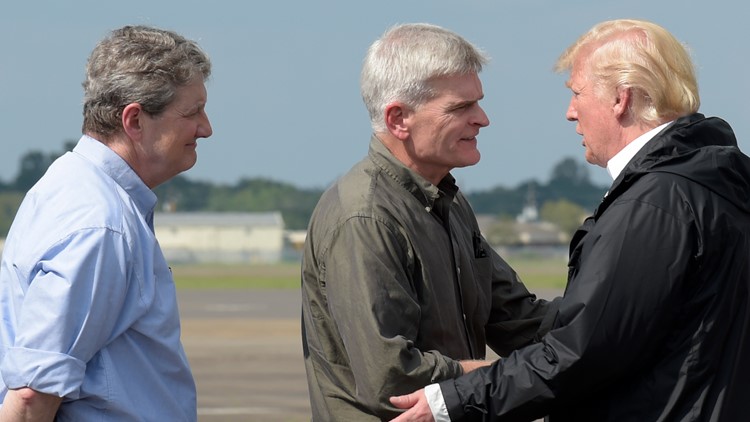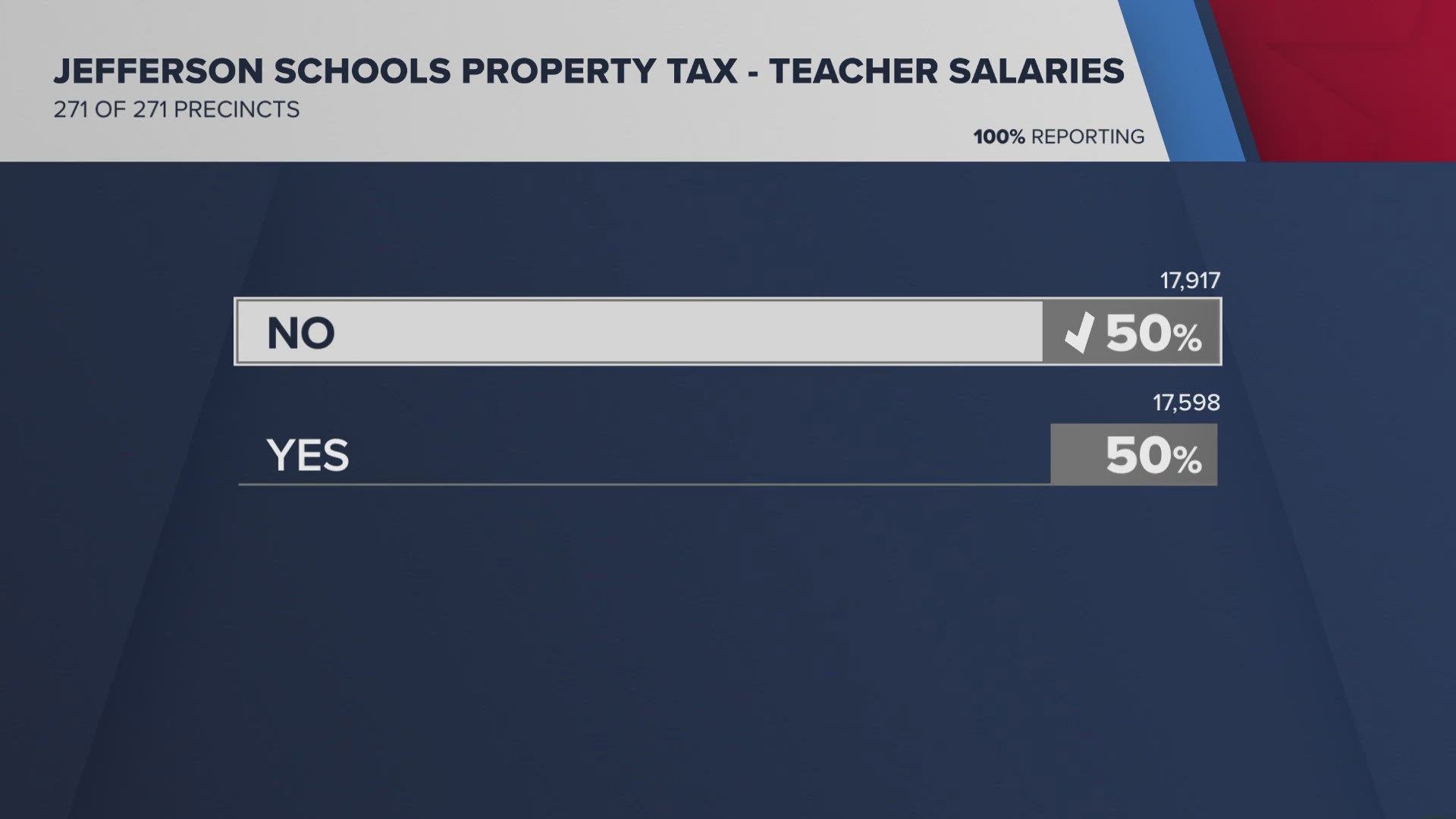NEW ORLEANS, Louisiana — U.S. Sen. Bill Cassidy still won’t say that Democrat Joe Biden is the president-elect, but the Republican senior senator from Louisiana called the obstacles facing President Donald Trump’s efforts to overturn losses in several swing states “apparent.”
Cassidy said during a news conference Tuesday that he’s confident Trump will concede if his lawsuits alleging fraud continue to fail.
“It’s working its way out,” Cassidy said. “The court is deciding now as to the validity of these court challenges. And there’s kind of an impatience for the courts to do their business, but when the courts do their business, then if it turns out President Trump loses those court cases, the president will concede.”
Pressed by reporters about whether Trump has any chance of winning the election given large deficits in a handful of states, Cassidy said: “You’re laying out the obstacles and the difficulty, and they’re apparent. And if they’re so apparent, it will become apparent soon that there is no pathway. But the president still thinks that he has.”
Cassidy also said that a peaceful transition of power depends on Trump having his court cases heard, in full.
“I think it’s going to be very important to the 70 million people who voted for President Trump to know that he has his day in court,” Cassidy said.
He said Trump has as much right to pursue legal challenges as former Vice President Al Gore did when he sought to continue and expand recounts in Florida during the much closer 2000 presidential election.
Unlike Trump, who trails by tens of thousands of votes in several states and would need to flip at least three of them to win, Gore trailed by a mere 537 votes out of almost 6 million cast in Florida, a single state where the winner would determine the presidency.
Gore's Republican opponent, George W. Bush, sued to stop recounts in a few heavily Democratic counties in Florida while election boards were still reviewing tens of thousands of disputed or uncounted ballots. The U.S. Supreme Court ruled 5-4 in Bush’s favor and also denied Gore’s push for a statewide recount. Gore gave his final concession 36 days after Election Day.
Cassidy easily won re-election to a second six-year term Nov. 3 by touting his strong support for Trump and by warning that a Biden presidency would hurt Louisiana’s oil and gas industry. But Cassidy is also a leading member of No Labels, a group of centrist politicians from both parties that promotes cooperation across the aisle.
With that in mind, he said he welcomed news that Biden is now approved to receive classified intelligence briefings, which he was denied for more than a week because Trump’s General Services Administration was not certifying Biden as president-elect.
Cassidy is also a physician, and he said he supports Biden receiving additional briefings about the status of Operation Warp Speed, the federal government’s program supporting the development and distribution of a coronavirus vaccine. He said the delay in acknowledging Biden as the winner would have no impact on distributing the vaccine.
“I can promise you, whoever the president is, he’s not going to be saying, ‘Hmm, is that how I get vaccine to St. Landry Parish?’ No. He’s going to say, ‘State, here is your vaccine, and you figure out how to get to the folks,’” Cassidy said.
Cassidy had to parse his words carefully while congratulating his Democratic congressional colleague, U.S. Rep. Cedric Richmond, D-New Orleans, on Richmond’s announcement Tuesday that he would accept a new post as a senior adviser in Biden’s White House.
“Recognizing court challenges are still taking place, that said, I’m very pleased for Cedric and I’m pleased for Louisiana,” Cassidy said. “His position in the West Wing would obviously give him influence that would allow him to present issues that are important to the people of Louisiana, a perspective that may otherwise not be heard by … that administration.”
Before taking questions that focused mostly on Trump’s unwillingness to concede, Cassidy touted Operation Warp Speed’s progress in developing Covid-19 vaccines after both Pfizer and Moderna announced their vaccines achieved high efficacy rates above 90 percent during clinical trials.
“There’s some more process to be done, but it may be that we could be getting vaccine to folks as soon as late December or early January,” he said. “That is great news.”
Cassidy said he understood that some people would be reluctant to get a vaccine that’s been developed on such an accelerated timeline, but he believes public confidence will grow after they see the success of the initial doses, which according to Louisiana’s state plan, will be distributed to front-line health care workers and then those working in nursing homes.
He also suggested that New Orleans Mayor LaToya Cantrell’s plan to prohibit Mardi Gras parades in February may be premature.
“I think it has to be dictated by the events on the ground,” he said. “What is the current infection rate at that time? What is the distribution of vaccine that’s occurring? And what do we think the baseline is of people who may have already been exposed and therefore would be immune?”



